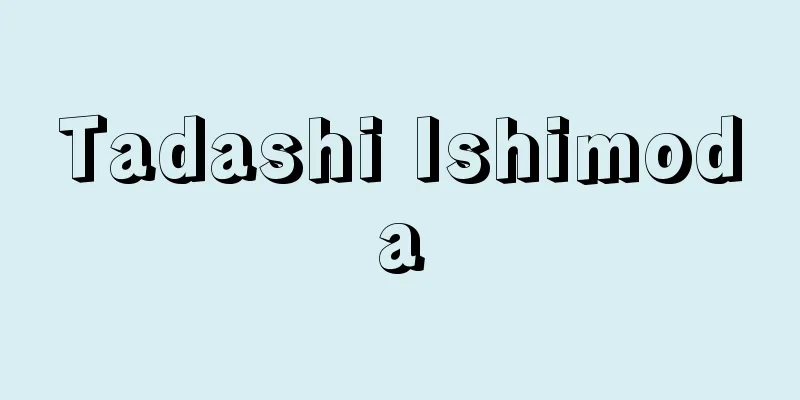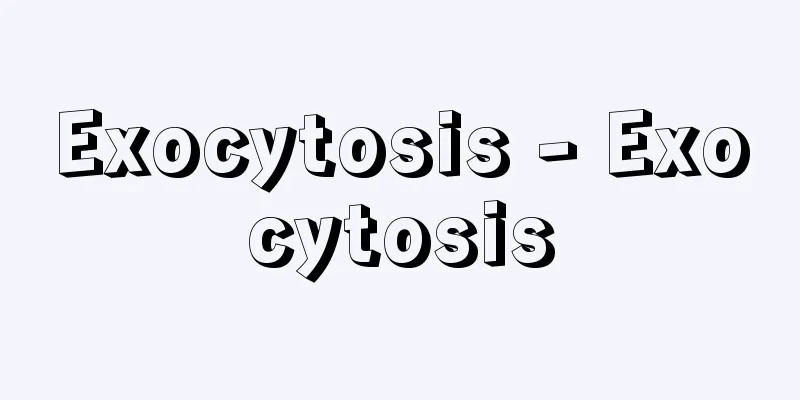Hegemony

|
Hegemony generally refers to the power of a hegemon, that is, one who wins a competition and becomes the leader, and is a concept that applies to various levels of human groups. For example, in his book "Modern Political Parties," G. Sartori (1924- ) presents the hegemonic party system as one type of party system. He explains that in this type of system, there is one party with absolute power, and other parties cannot compete with each other as equal opponents, but are merely secondary or satellite parties to the hegemonic party. On the other hand, the concept of hegemony has been widely used in realist analysis of international politics. In other words, the view is that the international community is a stage for the struggle for hegemony between nations, that it has caused many wars for hegemony in the past, and that the existence of hegemonic nations has empirically brought stability to international politics. This is also called hegemonic stability. The international order system up until World War I was called "Pax Britannica" (peace through the power of Britain), and the system after World War II was called "Pax Russo Americana" (peace through the power of the United States and the Soviet Union), which express the hegemonic order of each era. In reality, the idea of hegemonic stability was strongly reflected in the diplomatic strategy of the United States during the Cold War, but since the 1970s, the hegemony of both the United States and the Soviet Union has declined, and in parallel with this, the international community has progressed into a situation known as multipolarity and multi-centeredness. In the end, this trend in the international community has intensified, and since the end of the Cold War in 1989, the "era without hegemony" has been emphasized. Today, the absence of a powerful governing body in the international community creates unstable situations, but to deal with these, multilateral consultative bodies such as the G8 and more recently the G20 (Group of 20 countries and regions) are being emphasized, while a "polycentric system" is taking root in which the United Nations and many other international and non-governmental organizations play important roles. In the future, the world cannot expect the emergence of a hegemonic nation as in the past, or the seizing of hegemony, which means absolute power control, but it is possible that a quasi-hegemonic nation will emerge, in the sense of having great influence over other nations. In that case, however, it would be possible to imagine a "regional hegemonic" nation or group whose sphere of influence is limited to a certain region. Examples include China in Asia, South Africa in Africa, and the European Union in Europe. In this context, it can be said that various complex relationships will develop with the United States, which still maintains a relatively large influence. The concept of hegemony was first directly discussed in Japan during the Sino-Soviet conflict that intensified from the late 1960s to the early 1970s. At the time, China was fiercely critical of the Soviet Union, which was attempting to approach Asia under the concept of collective Asian security. China was critical of this, seeing it as a scheme to establish a Soviet-led international political order, and advocated anti-hegemonism in the 1972 Sino-U.S. Joint Communiqué (Shanghai Communiqué), the 10th Congress of the Communist Party of China in 1973, and the 1975 Constitution. The treatment of anti-hegemonism was also an issue in the negotiations for the Treaty of Peace and Friendship between Japan and China, which began in November 1974. Negotiations between Japan and China were difficult over the clarification and interpretation of the statement in the 1972 Sino-Japanese Joint Communiqué that "neither Japan nor China should seek hegemony in the Asia-Pacific region, and we oppose any attempt by any country or group to establish such hegemony" (paragraph 7). In the end, the friendship treaty was concluded in August 1978, but differences in interpretation of the so-called "hegemony clause" remained. While the Japanese side maintained that "it would not affect relations with third countries," the Chinese side believed that the "hegemony clause" targeted the Soviet Union. The former Soviet Union viewed this as an "anti-Soviet alliance" and increased pressure on Japan. Thus, since Japan had been under the protection of the United States since the postwar period and had paid little attention to trends in international politics, it was forced to take a realistic approach to the hegemony issue through the Sino-Soviet conflict. [Aoki Kazuyoshi] [References] | | | U.S.- |Source: Shogakukan Encyclopedia Nipponica About Encyclopedia Nipponica Information | Legend |
|
覇権(ヘゲモニー)とは一般に、覇者、つまりは競争に勝って第一人者となった者の権力をさすが、人間集団のさまざまな次元において成立する概念である。 たとえば、サルトーリG. Sartori(1924― )は『現代政党学』という著書のなかで、政党制の一つの類型としてヘゲモニー政党制を掲げている。そこでは、一つの絶対的な権力を有する政党が存在し、他の政党は平等な敵対者として対抗することはできず、あくまでも覇権政党にとって第二次的政党、衛星政党でしかない、と説明している。 他方、覇権概念は国際政治の現実主義的分析のなかで多く用いられてきたといえる。すなわち、国際社会は国家間の覇権をめぐる闘争の舞台であり、かつて多くの覇権戦争を引き起こして、そして経験的に覇権国家の存在が国際政治の安定化をもたらしてきたとする見方である。これを覇権安定hegemonic stabilityともよぶ。第一次世界大戦までの国際秩序体制を「パックス・ブリタニカ」(イギリスの力による平和)、第二次世界大戦以降を「パックス・ルッソ・アメリカーナ」(米ソの力による平和)とするのはおのおのの時代の覇権秩序を言い表している。現実に冷戦時代のアメリカの外交戦略には覇権安定の考え方が色濃く反映していたが、1970年代以降には米ソ両国の覇権の凋落(ちょうらく)現象が生じ、それに並行して国際社会には多極化や多中心化とよばれる状況が進行した。結局、国際社会のその流れは強まり、1989年の冷戦終結以降は「覇権なき時代」が強調されるようになった。今日、国際社会の権力的な管理主体の不在という点で不安定な局面も生じるが、それに対処すべくG8(ジーエイト)、さらに最近ではG20(主要20か国・地域)といった多国間の協議体が重視される一方、国連をはじめ多くの国際組織、非政府組織が重要な役割を演じる「多中心的な体制polycentric system」が定着しつつある。今後の世界には従来のような覇権国家の登場あるいは絶対的な権力的支配を意味する覇権の掌握は想定できないが、他国に大きな影響力をもつという意味での準覇権的な国家の登場はありうる。ただしその場合、影響力の及ぶ範囲がある一定の地域に限定されるような「地域覇権」的国家や集団として想定できるだろう。たとえば、アジアでの中国、アフリカでの南アフリカ、そしてヨーロッパでのヨーロッパ連合などがその例である。そのなかで、依然として相対的に大きな影響力を持続させるアメリカとの種々複雑な関係が展開されていくといえるだろう。 日本において覇権概念が直接的に議論されたのは、1960年代後半から1970年代初頭にかけて深刻化していた中ソ対立を契機とする。当時、アジア集団安保構想の下でアジアへの接近を図っていたソ連に対して、中国はソ連主導の国際政治秩序を樹立する策謀として激しく批判し、1972年の米中共同声明(上海(シャンハイ)コミュニケ)、1973年の中国共産党十全大会、1975年憲法などを通じて反覇権主義を掲げた。1974年(昭和49)11月から始まる日中平和友好条約の締結交渉でも反覇権主義の扱いを問題とした。そこでは1972年の日中共同声明の「(日中)両国のいずれも、アジア・太平洋地域において覇権を求めるべきでなく、このような覇権を確立しようとするいかなる国あるいは集団による試みにも反対する」(第7項)ことの明文化および解釈をめぐって日中間の交渉は難航した。結局、友好条約は1978年8月に締結されたが、いわゆる「覇権条項」に対する解釈の相違は残される形となった。日本側は「第三国との関係に影響を及ぼすものではない」とする一方、中国側は「覇権条項」がソ連を標的にするものとしていた。かつてのソ連はそれを「反ソ同盟」とみなし、対日圧力を強めたのである。このように、戦後の日本はアメリカの保護下で国際政治の動向にほとんど関心を払ってこなかっただけに、中ソ対立を通じての覇権問題に現実的な対応を迫られたのである。 [青木一能] [参照項目] | | | |出典 小学館 日本大百科全書(ニッポニカ)日本大百科全書(ニッポニカ)について 情報 | 凡例 |
Recommend
Ship's Head
Also written as "Funamoto." In the Edo p...
Rock button - Rock button
A small herbaceous plant in the Saxifragaceae fam...
Seirēnes (English spelling)
…in Greek mythology, the sirens were sea spirits ...
Tatsuta [village] - Tatsuta
A village in Ama County, on the western edge of Ai...
Abubaker - Abubaker
…Philosopher and physician in the Western Islamic...
Chronicles of Emperor Daigo
Also called "Engi Goki." Diary of Empero...
Kamigata-shu
〘Noun〙① A general term for daimyo who had castles ...
Vestigial organs
In an organism, this refers to an organ that does...
Japanese Art
From prehistoric times to the historical period, ...
Williamson, A.
…The original name was The Society for the Diffus...
Inverse Come - Inverse Come
…It is often shown in textbooks as a model to exp...
Kuster Bun Luker - Kuster Bun Luker
…It is believed to have originally been composed ...
Shuan (English spelling)
It belongs to Ji'an County, Jilin Province, Ch...
(■1) Chemical money - Aikasen
… [Economics of Money] [Definition and Function o...
Crowned orchid - Crowned orchid
...It is easily bred in captivity. The closely re...




![Oyama [city] - Oyama](/upload/images/67cb23115fb6b.webp)



![Shima [Hot Springs] - Shima](/upload/images/67cbc9c7aa7a2.webp)
